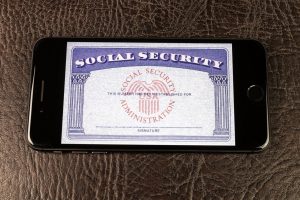Definition
The Post-9/11 GI Bill is a United States education benefit program established in 2008 for veterans, service members, and their dependents. It offers financial support towards higher education and training, covering tuition fees, housing, and textbooks. The program is specifically designed for those who served on active duty on or after September 11, 2001, helping them access educational and career opportunities.
Key Takeaways
- The Post-9/11 GI Bill provides educational and financial assistance to eligible veterans, service members, and their families who served at least 90 days of active duty after September 10, 2001.
- Benefits include tuition and fees coverage, a monthly housing allowance, an annual book and supplies stipend, and the option to transfer unused benefits to eligible dependents.
- Eligibility and the amount of benefits depend on the length of service and other factors, which can be determined by using the Department of Veterans Affairs GI Bill Comparison Tool.
Importance
The Post-9/11 GI Bill is an important term in the context of VA benefits as it represents a significant support system for veterans and their families who have served in the military after the September 11th, 2001 terrorist attacks.
This education benefit program, introduced in 2008, provides financial assistance for tuition, fees, housing, and other educational expenses to eligible service members, allowing them to pursue higher education or career training.
Additionally, the bill allows the transfer of benefits to immediate family members, offering a valuable resource for the entire family.
In essence, the Post-9/11 GI Bill is essential because it demonstrates the nation’s commitment to empowering its veterans and their families by facilitating access to education and promoting their long-term success and well-being.
Explanation
The Post-9/11 GI Bill is an essential educational assistance program designed by the US Department of Veterans Affairs to support and empower veterans, service members, and their families. Its purpose is to secure the future of those who have dedicated their lives to serving the nation in uniform by granting them the opportunity to earn degrees, certifications and professional qualifications.
This legislation has been enacted in recognition of the unprecedented sacrifice and service performed by these brave individuals in the aftermath of the tragic events of September 11th, 2001. The bill aims to facilitate their transition back into civilian life and equip them with the tools needed to achieve their career goals and aspirations.
The Post-9/11 GI Bill offers financial support to eligible recipients, including veterans, active duty, Selected Reserve, and National Guard members, for various educational programs and services such as college education, technical and vocational training, and on-the-job training. Additionally, depending on the length of service, the bill can greatly help in covering tuition fees, providing a monthly housing allowance (MHA), and establishing an annual book stipend.
By fulfilling these essential needs, the government is not only providing vital support for a key demographic in their pursuit of higher education and growth, but also ensuring that our nation continues to invest in its human capital, consequently maintaining a robust, skilled workforce that drives innovation, fosters economic growth, and safeguards our democracy.
Examples of Post-9/11 GI Bill
The Post-9/11 GI Bill is a benefit program provided by the U.S. Department of Veterans Affairs (VA) to veterans, service members, and their families for educational and training purposes. Here are three real-world examples of how individuals might use the Post-9/11 GI Bill:
College Education: A veteran, who served on active duty after September 10, 2001, and is now pursuing a bachelor’s degree at a public university, can use the Post-9/11 GI Bill to cover their tuition and fees. The bill may also provide funding for textbooks and a housing stipend. This financial assistance helps the veteran complete their degree program without worrying about student loans or tuition costs.
Vocational Training: A service member transitioning from military to civilian life may use the Post-9/11 GI Bill for a non-degree, vocational, or technical training program. Programs such as HVAC certification, truck driving, or information technology training are eligible. By utilizing this benefit, the service member can develop new skills to ease their transition to the civilian workforce.
Transfer of Benefits: A service member or veteran who has unused Post-9/11 GI Bill benefits and meets certain eligibility criteria may transfer their remaining benefits to a spouse or dependent children. For example, a service member nearing retirement may choose to allocate a portion of their Post-9/11 GI Bill benefits to their spouse for graduate school, and the remainder to their children for undergraduate studies. This transferability feature extends the educational and financial advantages of the bill to qualifying family members.
FAQ: Post-9/11 GI Bill
What is the Post-9/11 GI Bill?
The Post-9/11 GI Bill is an educational assistance program for veterans who served a minimum of 90 days active duty after September 10, 2001, or were discharged with a service-connected disability after 30 days. This benefit can cover the cost of tuition, fees, monthly housing allowance, and more.
Am I eligible for the Post-9/11 GI Bill?
You may be eligible for the Post-9/11 GI Bill if you meet at least one of these requirements: served at least 90 days of active duty on or after September 11, 2001, received an honorable discharge, or were discharged with a service-connected disability after 30 days. Additionally, if you are a dependent of a Veteran who meets these eligibility requirements, you may also be eligible to receive transferred benefits.
How much financial assistance can I receive under the Post-9/11 GI Bill?
The amount of financial assistance you receive from the Post-9/11 GI Bill depends on various factors, including your length of service, the type of educational institution you attend, and the type of education or training program you choose. You may receive up to the full cost of tuition and fees for public schools, and a national maximum amount per academic year for private or foreign schools. Additionally, you may be eligible for a monthly housing allowance, a books and supplies stipend, and other benefits.
How can I apply for the Post-9/11 GI Bill?
To apply for the Post-9/11 GI Bill, you can use the online application form available at the VA’s website, apply in person at a VA regional office, or submit your application by mail using the VA Form 22-1990. You can also receive assistance with your application at a Veteran Service Organization (VSO) or an on-campus VA office.
Can I transfer my Post-9/11 GI Bill benefits to a spouse or dependents?
Yes, if you are an eligible Veteran, you can transfer unused Post-9/11 GI Bill benefits to a spouse or dependent children. To do so, you must meet specific service requirements, and the number of months of transferred benefits must be approved by your service branch. You can apply to transfer your benefits by visiting the DoD milConnect website or submitting the VA Form 22-1990e.
Related VA Benefit Terms
- Yellow Ribbon Program
- Veterans Affairs (VA) Education Benefits
- Monthly Housing Allowance (MHA)
- Books and Supplies Stipend
- GI Bill Comparison Tool
Sources for More Information
 Benefits.com Advisors
Benefits.com Advisors
With expertise spanning local, state, and federal benefit programs, our team is dedicated to guiding individuals towards the perfect program tailored to their unique circumstances.
Rise to the top with Peak Benefits!
Join our Peak Benefits Newsletter for the latest news, resources, and offers on all things government benefits.




















